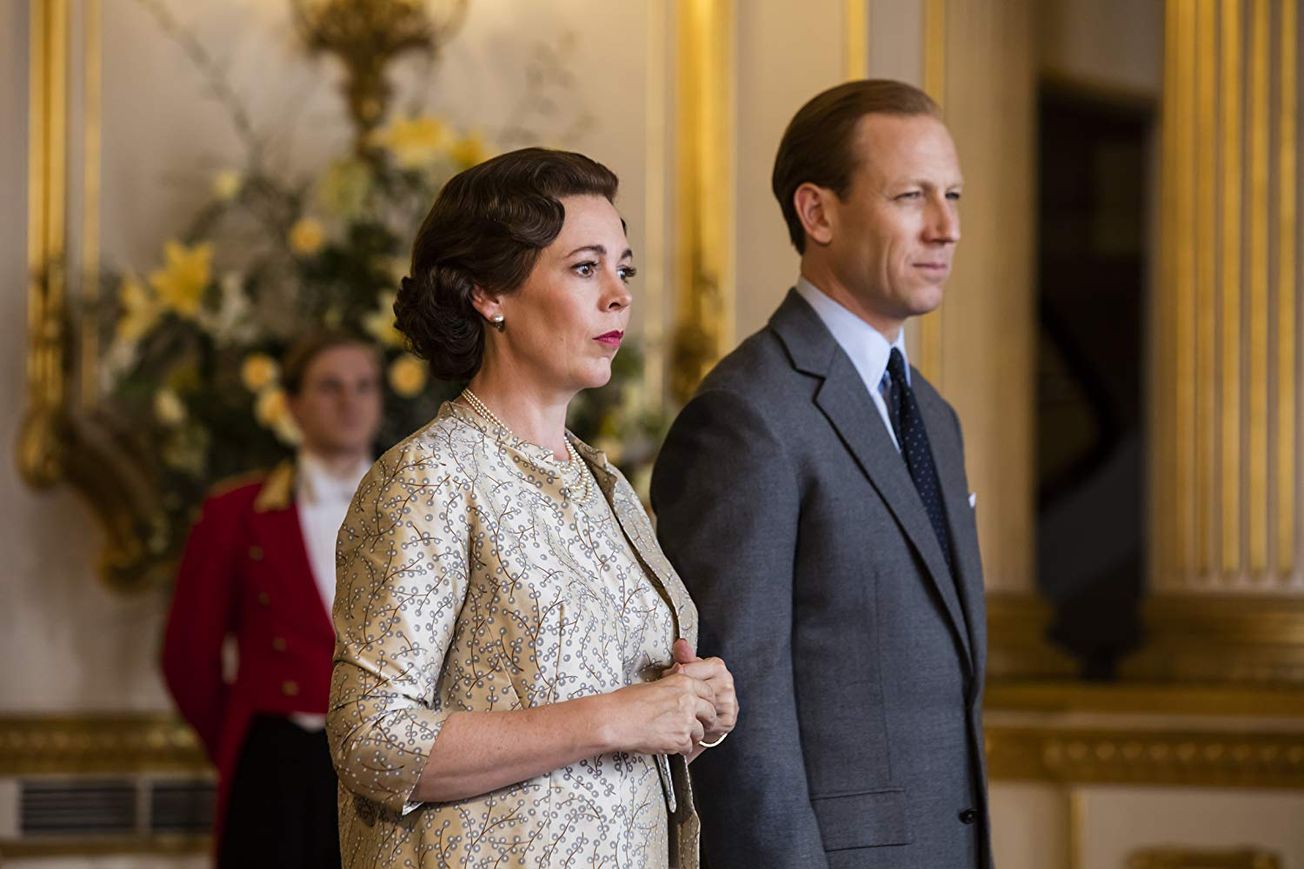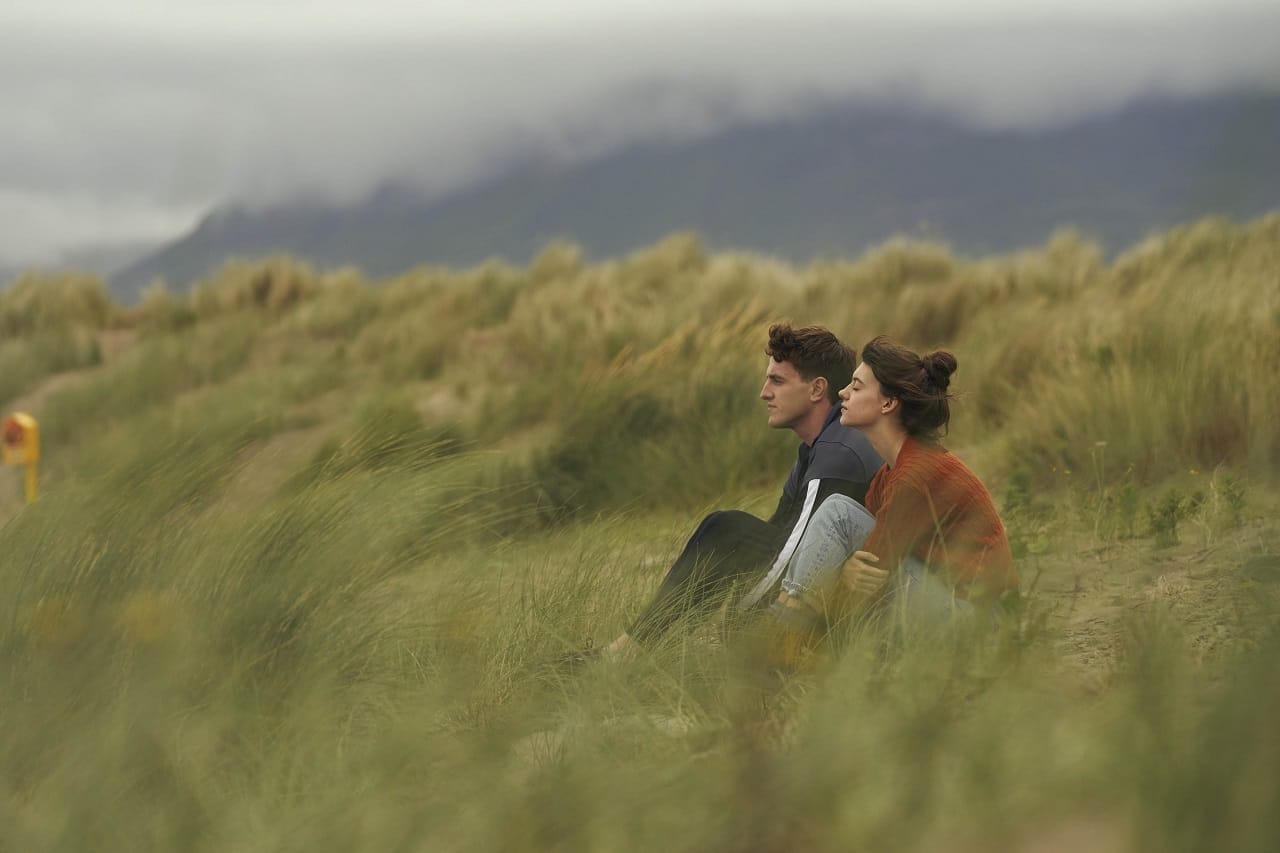Daisy Game, Entertainment Subeditor
Royal flop or crowning glory? Four episodes in, and it’s all still-a-bit-iffy for The Crown series three.
Get into your starting positions, ladies and gentlemen: it’s the one we’ve all been waiting for, it’s the elephant in the ballroom …. it’s Olivia Coleman - and it’s complicated.
Heading up the series in place of the truly-pretty-stellar Claire Foy, Coleman’s performance was always going to have to hit it way, way, out of the park to begin to even hope to even nudge at her predecessor’s success. And to give her due credit, Coleman’s is a solid, resoundingly appropriate performance. She frowns with an effective stiff-lipped-seriousness, hits the nasal ‘wan’ of one and ‘yis’ of yes with pitch perfect precision and strolls into shot with a consistently solid, sovereign grace – and yet.
Might it all feel a little too royal? A little too ‘I’m playing the queen, and this is how we all think she frowns and this how we all think she talks and walks so this is what I’m going to do’. The wonder of Claire Foy’s performance lay in its rejection of Elizabeth as simply the sum of her title; hers was a monarch whose stumbles and stutters made for a figure of oddly touching humanity. Coleman, on the other hand, is tough as old boots. No stuttering here – no rosy cheeked floundering. This new queen is tough, practised, and emotionally unavailable.
London Road is a masterfully-crafted adaptation of complex source material
Of course it’s possible - quite likely, in fact - that I’ve missed the point entirely: perhaps this newly settled sovereign is the perfect amount of flinty. To be royal is to perform a duty, after all, and ‘there is nothing one can do about it - one just has to get on with it’, a well-rehearsed Elizabeth recites.
This new queen is tough, practised, and emotionally unavailable
Maybe the fact that we do indeed feel such anguish – such frustration - in response to Coleman’s steely sovereign, might just be a testament to the triumph of her performance. Things have changed since last we all met; it’s the 1960’s, and England is starting to get a little hot under the collar. Winston Churchill, and all that once sat firm between parliament and the royal family, has passed; the Conservative government has been replaced by Labour.
Slowly, eyes have started to turn and twist towards the throne - brows scrunched in a newfound claim to confusion - and wonder - why do you sit there, when we struggle here? Who are you to us? The royal family have become that bit more remote; that little bit less familiar than they seemed before. So - Coleman’s hard, resigned, resolutely distant Elizabeth? It may very well be that she’s more brilliant than ever.
Not feeling season 3 of #TheCrown. It’s a big disappointment; the change of actors has ended the brilliance of watching the Queen & Philip make sense of the world, their place & marriage within it.
— Leon Green (@leongreen) November 18, 2019
Anyone else feel this or am I deep into unpopular opinion territory?🤭 pic.twitter.com/3K91bHbrpj
Helena Bonham Carter’s Margaret is more definitively lacking. Bent double by a desire to snap the strings of role as ‘second fiddle’ to big sister Liz - she just doesn’t quite convince. Yes, she’s appealingly naughty and glamorous – concocting rude limericks with the President of the United States - eyes flicked, lips glossed - dancing on pianos and stumbling home in a silk-and-diamond-mess: it’s all rather tempting, certainly.
But where has our legitimately discontent Margaret gone? The woman barred from marrying the man she loved on account of his previous dalliance with betrothal. The woman left to watch her sister make a family and head up a country, whilst she is left to wonder what exactly her place in it all this is? Carter’s Margaret just seems to lack dimension, somehow: we have the pout, certainly – but what about that emotional bite?
Slowly, eyes have started to turn and twist towards the throne - brows scrunched in a newfound claim to confusion - and wonder - why do you sit there, when we struggle here?
It is Tobias Menzies to whom shout-out-of-the-recast should go – his is an utterly fabulous regeneration of tenderly gruff-and-grumpy Philip. Huffing and spitting with crabby conviction, Menzies’s crusty Philip is at first delightfully bemusing, and then rather genuinely affecting - ‘eyes left!’, Phillip commands, before leaning in to plant a remarkably unremarkable kiss on his wife’s waiting lips. Matt Smith’s previously knockout performance has been studied and replicated with exact precision – and it’s a homework session that paid off.
Despite casting which has yet to sing-for-its-supper, the series’ impeccable aesthetic vision is back in full force from the get-go. Costume is glorious – Margaret sashaying onto screen draped in golden robes and clod in be-glittered heals as Elizabeth sits in practical woollen jackets - sensible pearl earrings; cinematography is equally tasty – honey-rich and sugar-crisp.
The King is bold but bored - even with Chalamet carrying it
It’s a wonder just how the series does it: paints a city and a country so far from the one to which we are accustomed with such tender familiarity. We recognise England in every street – in every Kodak-camera-high-street-sign and in every cobbled road playing host to crowds of ever-more-everyday cars.
We’re creeping ever closer to the scratch of a 21st century London – and the series has navigated its gentle shift forward with impressive direction, whilst still continuing to boast history with infectious conviction. England, London, the monarchy. Ours is a country with a big, bolshy past, The Crown announces with glee. War and espionage, politics and scandal: we might not get off scot free in terms of the criteria of unproblematic cinema– but we sure were exciting.








